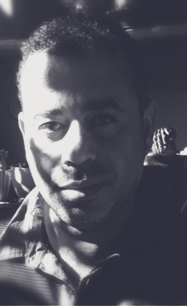
Picture of passers-by in Souq Al-Zawiya - Scenes from daily life in Gaza’s markets

Portrait of a vendor in the market (souk) of al-Shati Refugee Camp - Scenes from daily life in Gaza’s markets



A vendor preparing vegetables to sell - Scenes from daily life in Gaza’s markets

Scenes from daily life in Gaza’s markets - Scenes from daily life in Gaza’s markets

A tradesman counting his money in Souq al-Zawiya - Scenes from daily life in Gaza’s markets




Two people working in a popular food restaurant in the refugee camp - Scenes from daily life in Gaza’s restaurants

Two people working in a popular food restaurant in the refugee camp - Scenes from daily life in Gaza’s restaurants

A child selling coffee on the street next to the sea - Scenes from the daily life of child street vendors in Gaza

A child selling coffee from a stand on the street adjacent to the sea - Scenes from the daily life of child street vendors in Gaza

A child selling coffee on the street close to the sea - Scenes from the daily life of child street vendors in Gaza

A coffee vendor in the park - Scenes from the daily life of vendors in Gaza

A teacher measuring students’ temperature levels upon their arrival to school - Scenes from the daily life of students in Gaza

Students wearing masks in their schoolyard - Scenes from the daily life of students in Gaza

Students wearing masks in their schoolyard during the morning queue - Scenes from the daily life of students in Gaza


Students wearing masks in their classrooms - Scenes from the daily life of students in Gaza



Family members studying after returning from school - Scenes from the daily life of my family in our Gaza home

Family members studying after returning from school - Scenes from the daily life of my family in our Gaza home

Family members looking out the home window after returning from schoo - Scenes from the daily life of my family in our Gaza home

Family members looking out the home window after returning from school - Scenes from the daily life of my family in our Gaza home

Family members praying with relatives after returning from school - Scenes from the daily life of my family in our Gaza home

My mother reading the Quran while wearing a mask - Scenes from the daily life of my family in our Gaza home

Family members drawing at home - Scenes from the daily life of my family in our Gaza home

Family members at home showing paintings related to the coronavirus - Scenes from the daily life of my family in our Gaza home

A child trying to sneak out of the house to play outdoors while under quarantine - Scenes from the daily life of my family in our Gaza home


A child at home trying to sleep while wearing a mask during the quarantine - Scenes from the daily life of my family in our Gaza home

A child at home under quarantine - Scenes from the daily life of my family in our Gaza home

Their lives inside a cage during the quarantine - Scenes from my family under quarantine in Gaza
